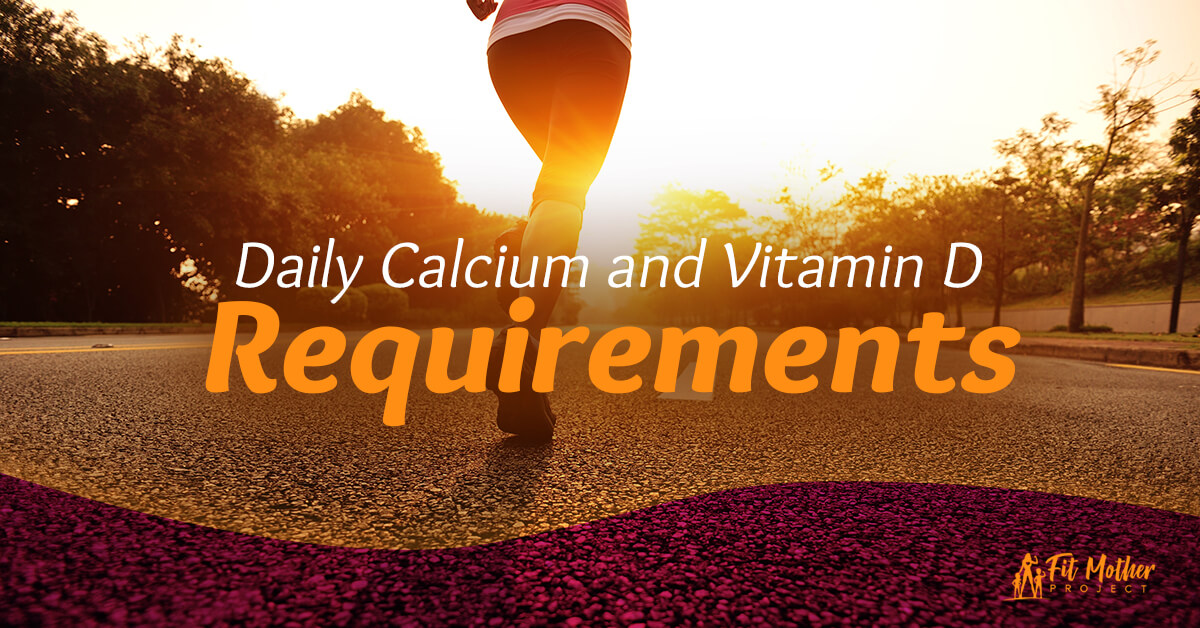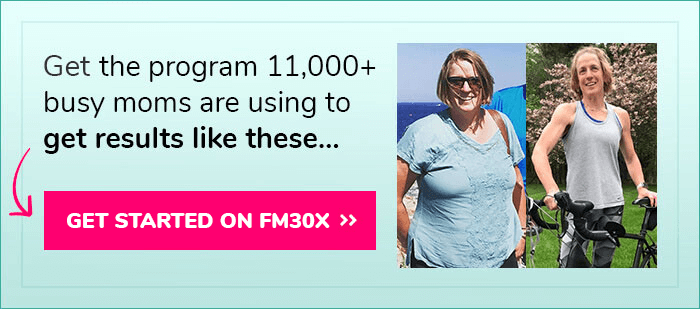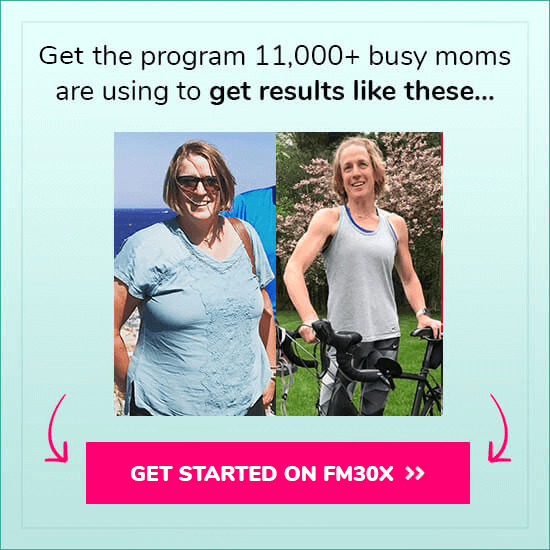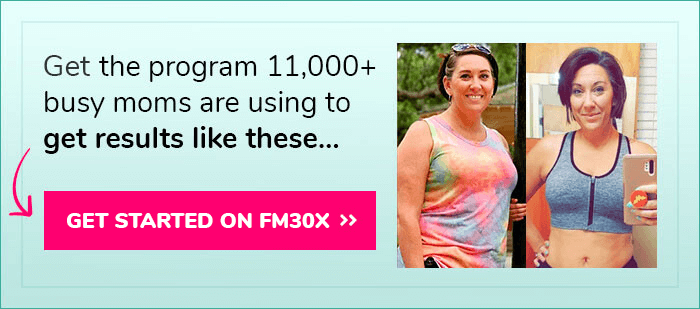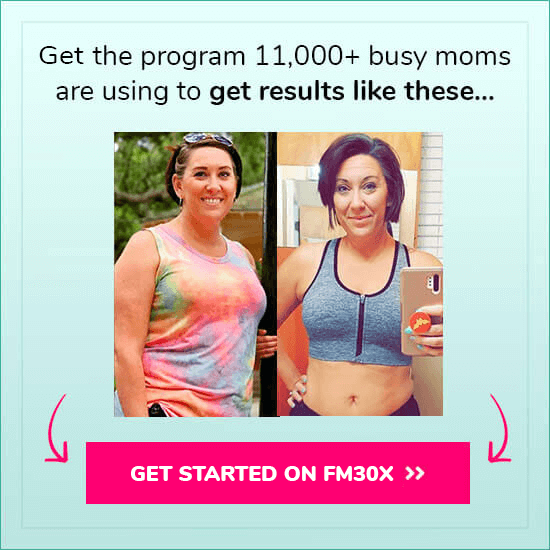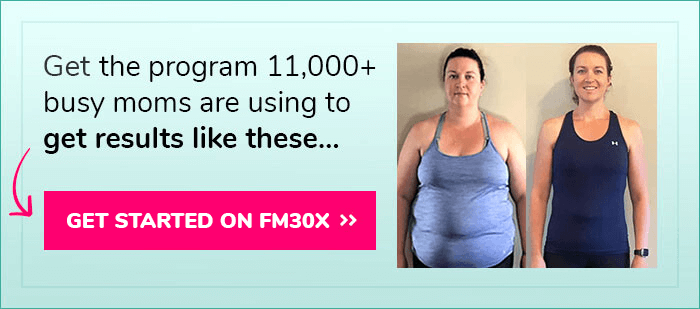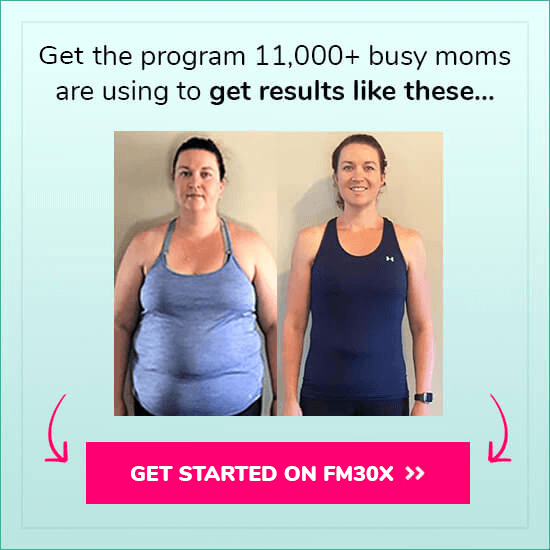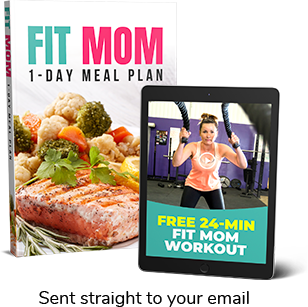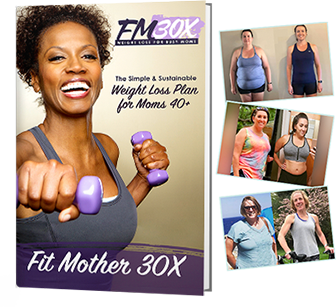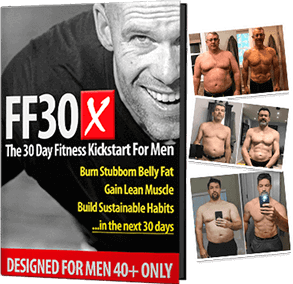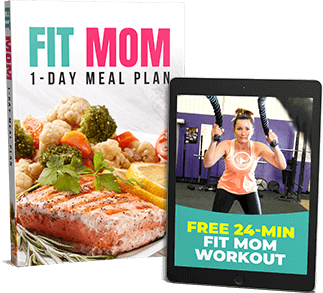What do you know about daily calcium and vitamin D requirements? Are you certain that you're getting the nutrients you need?
Calcium and vitamin D are two essential nutrients women need to stay healthy and reduce the risk of unpleasant side effects and chronic diseases.
Knowing more about calcium and vitamin D requirements, and how to get the amount you need through diet and supplements, is crucial to optimizing your overall health and wellness.
Here's what you need to know about daily calcium and vitamin D requirements.
Taking iron supplements or adding iron-rich foods to your diet? How much iron is too much iron?
Why Do I Need Calcium and Vitamin D?
You need calcium and vitamin D on a regular basis to maintain optimal body structures and functioning.
Calcium
Calcium is a mineral found in large amounts within your body.
You need plenty of calcium on a regular basis for proper nerve transmission, muscle function, cell signaling, and hormone secretion.
The majority of calcium in your body is found in your bones and teeth.
Not getting enough calcium can lead to weak bones over time, osteoporosis, or problems with your oral health, as well as numbness and tingling in your fingers, fatigue, muscle cramps, abnormal heart rhythms, and convulsions.
Vitamin D
Your body uses vitamin D to enhance calcium absorption and maintain adequate blood calcium and phosphate levels.
It's also needed to maximize bone strength and protect you against low bone density and osteoporosis.
Getting plenty of vitamin D in your diet daily can reduce inflammation and promote cell growth, a strong immune system, optimal neuromuscular function, and exceptional glucose metabolism.
Vitamin D deficiency might lead to muscle weakness, fatigue, pain, or depression.
This video explains basic nutrition for beginners, giving you 4 actionable ways you can eat healthier!
Daily Calcium and Vitamin D Requirements
Daily calcium and vitamin D requirements for women depends on their age, life stage, and level of calcium and vitamin D stores within their bodies.
For example, if you have low vitamin D blood levels or low bone density, your doctor might recommend you take calcium and vitamin D supplements at dosages higher than recommendations for the general population.
Calcium RDAs
Calcium recommended dietary allowances (RDAs), which are the minimum daily requirements needed to meet the needs of most people in each age and gender group, are as follows for women:
- Women ages 19-50: 1,000 milligrams per day
- Women over age 50: 1,200 milligrams per day
- Pregnant women: 1,000 milligrams per day
- Nursing women: 1,000 milligrams per day
If you've been diagnosed with low bone density or osteoporosis, your doctor might recommend you take additional calcium supplements or medications to keep your bones as healthy as possible and reduce the risk of fractures.
To meet daily calcium needs, look for multivitamin supplements (designed specifically for women) containing calcium, and incorporate calcium-rich foods into your diet daily.
Vitamin D RDAs
Vitamin D RDAs for adult women, listed in micrograms rather than milligrams, are as follows:
- Women ages 19-70: 15 micrograms per day
- Women over age 70: 20 micrograms per day
- Pregnant women: 15 micrograms per day
- Nursing women: 15 micrograms per day
Based on research, it's estimate that about 40% of adults in the United States aren't getting as much vitamin D as needed to meet the body's demands.
As with calcium deficiency, if you're deficient in vitamin D your doctor might recommend you choose vitamin D supplements in doses higher than the recommended dietary allowance.
They may suggest you eat vitamin D-rich foods, take a multivitamin supplement, and take an additional daily vitamin D supplement.
How Much is Too Much Calcium and Vitamin D?
While getting plenty of calcium and vitamin D in your diet and from supplements is important, too much of a good thing can be problematic.
That's why the National Institutes of Health established tolerable upper intake levels, which are the maximum safe levels of nutrients for most of the population.
Calcium Upper Intake Levels
Excessive calcium can lead to kidney problems over time, kidney stones, constipation, and possibly a higher risk of prostate cancer.
Too much calcium can also interfere with zinc and iron absorption.
For this reason, it's best to avoid exceeding tolerable upper intake levels for calcium (unless your doctor recommends it), which are:
- Women ages 19-50: 2,500 milligrams per day
- Women over age 50: 2,000 milligrams per day
Listen to your doctor's advice when it comes to taking calcium supplements, to ensure you're not ingesting more than what's considered safe for you.
Vitamin D Upper Intake Levels
As with too much calcium, excessive vitamin D can cause health problems in men and women.
Excess vitamin D can build up in your body and become toxic over time.
It may cause blood calcium to increase to abnormally high levels and contribute to vomiting, nausea, muscle weakness, kidney stones, excessive thirst, loss of appetite, and chronic pain.
In extreme cases of vitamin D toxicity, you might experience kidney failure, heart problems, or even death.
The tolerable upper intake level for vitamin D in women ages 19 and older is:
- 100 micrograms per day
Don't exceed this amount of vitamin D from supplements unless your doctor tells you to.
Ingesting calcium and vitamin D from foods doesn't put you at risk of toxicity, but taking vitamin supplements in high doses, especially long-term, can be dangerous.
Which Foods are Rich in Calcium and Vitamin D?
Use the information below when planning well-balanced menus, to ensure you choose foods rich in calcium and vitamin D.
Calcium-Rich Foods
To help meet daily calcium needs, consider adding the following calcium-rich foods to your daily meal plans:
- 1 cup of plain yogurt: 415 milligrams
- 1 cup of calcium-fortified orange juice: 349 milligrams
- 5 ounces of mozzarella cheese: 333 milligrams
- 3 ounces of sardines: 325 milligrams
- 5 ounces of cheddar cheese: 307 milligrams
- 1 cup of milk: 300 milligrams
- 1 cup of soy milk: 299 milligrams
- 1 cup of buttermilk: 284 milligrams
- ½ cup of firm tofu: 253 milligrams
- 3 ounces of canned salmon: 181 milligrams
- 1 cup of cottage cheese: 138 milligrams
- ½ cup of soft tofu: 138 milligrams
- 1 serving of calcium-fortified breakfast cereal: 130 milligrams
- ½ cup of frozen yogurt: 103 milligrams
- ½ cup of boiled turnip greens: 99 milligrams
- 1 cup of cooked kale: 94 milligrams
- 1 tablespoon of chia seeds: 76 milligrams
- 1 cup of raw cabbage: 74 milligrams
Choose a variety of calcium-rich foods daily.
Consume three servings of dairy foods, or calcium-rich non-dairy equivalents, every day if you can.
These 7 principles of nutrition are always true, no matter what your diet consists of.
Vitamin D-Rich Foods
The following foods are good sources of vitamin D:
- 1 tablespoon of cod liver oil: 34 micrograms
- 3 ounces of rainbow trout: 16 micrograms
- 3 ounces of sockeye salmon: 14 micrograms
- ½ cup of white mushrooms: 9 micrograms
- 1 cup of vitamin D-fortified milk: 3 micrograms
- 1 cup of vitamin D-fortified soy milk: 3 micrograms
- 1 serving of fortified ready-to-eat cereal: 2 micrograms
- 2 sardines: 1 microgram
- 1 large egg: 1 microgram
- 3 ounces of canned light tuna: 1 microgram
In addition to consuming three servings of dairy foods or dairy-free alternatives daily, fill one-fourth of each plate of food with protein foods – such as fish or eggs.
Fill half of your plate with leafy greens or other non-starchy vegetables.
Learn how to read food nutrition information on another level!
Can I Get Vitamin D from Sunlight?
Being outdoors in the sun is another way you can get in a daily dose of vitamin D.
Just a few minutes of sunlight exposure daily (without sunscreen) might help your body produce enough vitamin D to meet its needs.
However, the amount of vitamin D the body can produce varies from person to person, and not wearing sunscreen increases your risk of developing skin cancer.
Therefore, it's often best to make sure you eat vitamin D-rich foods and take vitamin D supplements as needed.
Learn how to create a healthier lifestyle and body with these 5 actionable tips!
Sample Menus Rich in Calcium and Vitamin D
To help ensure you meet your body's daily calcium and vitamin D requirements, consider the following menus rich in these two essential nutrients:
Day 1
Breakfast
- Fortified, low-sugar breakfast cereal
- Milk or plant milk
- Banana slices
- Sliced almonds
Snack
- Greek yogurt
- Blueberries, raspberries, or blackberries
Lunch
- Tuna salad over leafy greens
- Sliced hard-boiled eggs
- Tomatoes, cucumbers, bell peppers, and mushrooms
- Mozzarella cheese
- Oil-based salad dressing (optional)
Snack
- A low-sugar protein bar
Dinner
- Grilled chicken or baked turkey breast
- Quinoa
- Asparagus with sesame seeds
- Olive oil for cooking
Snack
- Cottage cheese
- Pistachios, sunflower seeds, or cashews
Let us show you how you can start losing weight this week! We'll email you our free meal plan & workout + email coaching.GET YOUR FREE
“FIT MOM” JUMPSTART
(MEAL PLAN + WORKOUT)
Day 2
Breakfast
- Scrambled eggs
- Uncured turkey bacon
- Oatmeal
- Low-sodium tomato juice
Snack
- A Protein shake blended with fruit and chia seeds
Lunch
- Grilled or baked firm tofu
- Brown rice prepared with olive oil
- Steamed broccoli
Snack
- Reduced-fat cheese
- Strawberries or fresh cherries
Dinner
- Baked salmon or trout
- Corn on the cob
- Green beans
- Sliced almonds
Snack
- Plain kefir
- Walnuts
Fit Mother Project is the first sustainable health & weight loss program designed exclusively for busy mothers just like you... FM30X is the first sustainable weight loss program designed exclusively for *busy* mothers like you... JOIN OUR fit
mother
PROGRAM (FM30X)JOIN OUR FIT MOTHER 30X PROGRAM
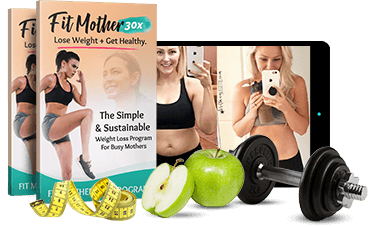
Day 3
Breakfast
- Calcium-fortified orange juice
- A low-sugar protein bar
Snack
- Low-fat cottage cheese
- Kiwi fruit, an apple, or an orange
Lunch
- A turkey, black bean, or veggie burger over leafy greens (or a whole-grain hamburger bun)
- Tomato slices, pickles, and avocado slices (or reduced-fat cheese)
Snack
- Hard-boiled eggs
- Grapes
Dinner
- Grilled shrimp and veggie kabobs
- Hummus and pita chips
- Olives (optional)
Snack
- A protein shake blended with milk or soy milk, protein powder, and peanut butter
Improve your lifestyle and nutrition by incorporating these healthy meals you can eat every day.
Other Ways to Maintain Strong Teeth and Bones
In addition to getting plenty of calcium and vitamin D in your diet by consuming healthy foods and taking dietary supplements, there are several things you can do to maintain strong teeth and bones.
Participate in Regular Exercise
Participating in regular exercise, particularly weight-bearing exercise early in life, helps build bone mass and strengthen your bones to reduce the risk of fractures.
Examples of weight-bearing exercises include jumping jacks, jogging, rope jumping, hiking, climbing stairs, dancing, playing tennis, and lifting weights.
Aim to get at least 30 minutes of exercise on most days of the week.
In addition to scheduled workouts, stay active as much as you can all throughout the day.
Try some of the Fit Mother Project's at-home, fat-burning workouts to get and stay fit for life.
Many people wonder “is exercise necessary for weight loss?” Find out the truth!
Don't Smoke
Smoking can reduce bone density, so it's best to avoid it whenever possible.
Smoking affects your bones by slowing bone-producing cell growth, reducing blood supply, decreasing calcium absorption, and altering healthy hormone balance.
Smoking affects your teeth too, staining them and increasing your risk of gum disease and tooth decay.
If you struggle to quit smoking, ask your doctor about support groups or medical treatments that aid in smoking cessation.
Practice Excellent Oral Hygiene
In addition to consuming plenty of calcium and vitamin D to maintain optimal oral health, practice good oral hygiene habits at home.
See your dentist at least every six months for professional dental cleanings and exams.
Brush your teeth at least twice daily using fluoride toothpaste, floss every day, wear a mouth guard at night if you grind your teeth, and don't chew on hard objects.
Find out how brushing your teeth after dinner can actually help you lose weight!
Take a Multivitamin Supplement
While calcium and vitamin D are both important for exceptional health and disease prevention, the other essential vitamins and minerals are equally important.
That's why taking a multivitamin supplement designed specifically for women (in the same age category as you) is a must.
Check in with your doctor if you're unsure which type of multivitamin is right for you.
See Your Doctor Regularly
If you're worried about not getting enough calcium or vitamin D to maintain strong teeth and bones, make it a point to see your doctor regularly.
They can evaluate blood calcium and vitamin D levels, and complete a bone density screening, to determine if you have low bone density or osteoporosis.
Routine monitoring of bone health is important if you're at risk of fractures.
If you are in the high-risk category, your doctor may suggest you take larger doses of calcium and vitamin D from supplements.
With a diagnosis of low bone density or osteoporosis, they might prescribe medications to reduce your risk of further bone loss.
Looking for signs you're a healthy woman? Try these 7 health tests you can do at home!
The Journey Toward Better Health
When you're ready to begin the journey toward optimal health and wellness, consider signing up for the Fit Mother Project healthy lifestyle program designed just for busy moms like you.
When you join, you receive custom healthy meal plans, effective fat-burning workouts, recipes, weekly newsletters, social support, and health coaching from medical experts.
In addition to consuming plenty of calcium and vitamin D on a daily basis, try Fit Mother Project's FM30X program for weight loss or sign up for the free Fit Mom 3-Day Weight Loss Jumpstart today!
Better health and more energy await you!
Erin Coleman is a registered and licensed dietitian with over 15 years of freelance writing experience. She graduated with her Bachelor of Science degree in nutritional science from the University of Wisconsin-Madison, and completed her dietetic internship at Viterbo University in La Crosse, Wisconsin. Prior to beginning her career in medical content writing, Erin worked as Health Educator for the University of Wisconsin-Madison Department of Internal Medicine. Her published work appears on hundreds of health and fitness websites, and she’s currently working on publishing her first book! Erin is a wife, and a Mom to two beautiful children.
Fit Mother Project is the answer you’ve been looking for. Inside the program, you’ll receive: Our Fit Mother 30X Program (FM30X) is the answer you’ve been looking for. Inside FM30X, you’ll receive:If you’re a busy mom who wants to finally lose weight,
get healthy, and actually keep the pounds off for good,
this is the simple program you’ll love sticking to…
If you’re a busy mom who wants to finally lose weight,
get healthy, and actually keep the pounds off for good,
this is the simple program you’ll love sticking to…
LEARN MORE ABOUT FM30X »
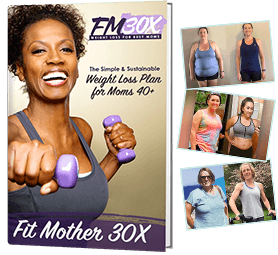
Learn More About FM30X

*Please know that weight loss results & health changes/improvements vary from individual to individual; you may not achieve similar results. Always consult with your doctor before making health decisions. This is not medical advice – simply very well-researched info on daily calcium and vitamin D requirements.

